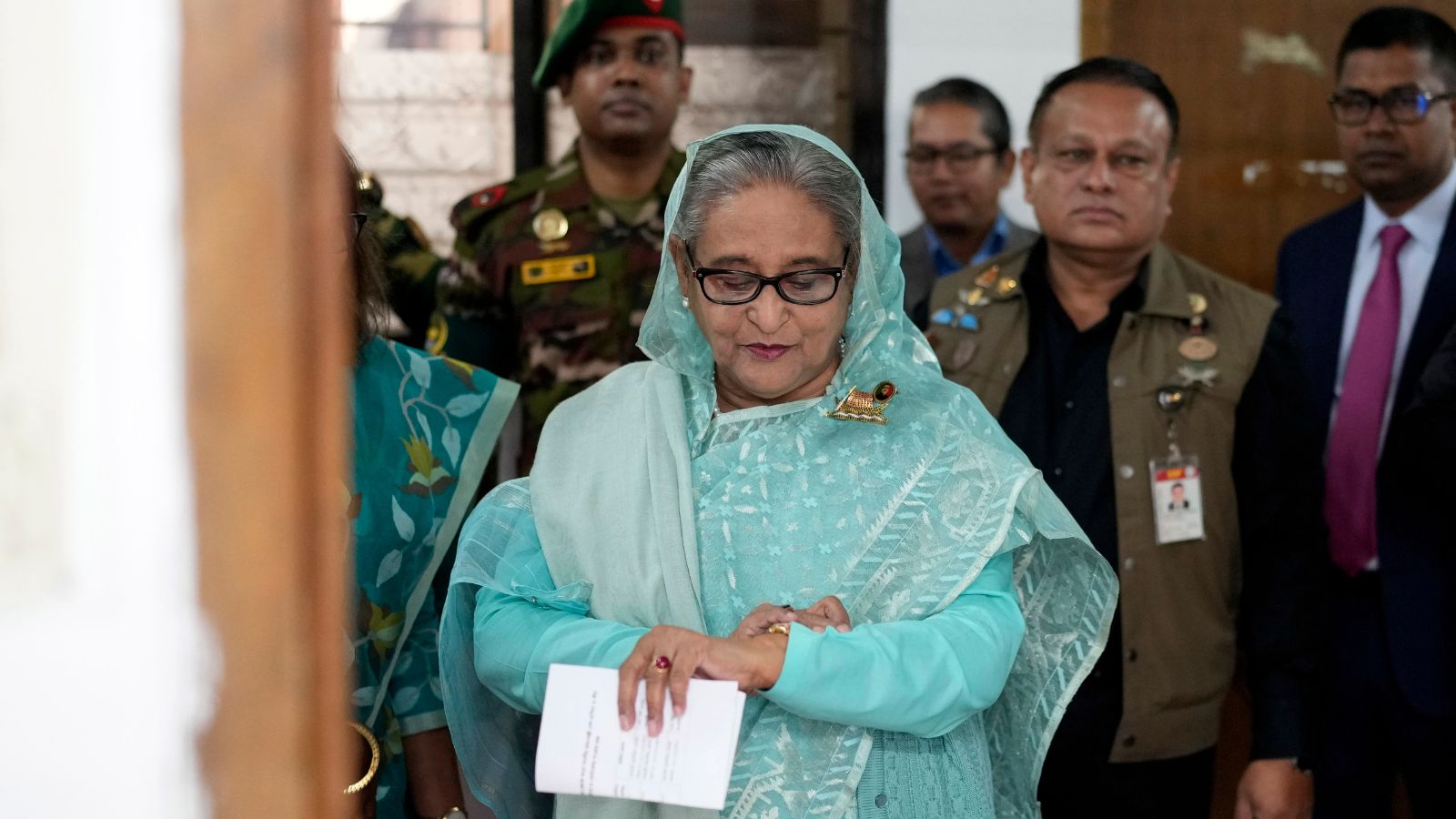 |
|
The recent political upheaval in Bangladesh has thrust the ousted Prime Minister Sheikh Hasina into the international spotlight, with her dramatic escape to India and subsequent allegations of a plot on her life dominating headlines. A voice note released by her Awami League party reveals a harrowing account of her escape, where she describes narrowly avoiding death by a matter of minutes as a mob stormed her residence following her resignation. Hasina’s claim, delivered in a trembling voice, paints a picture of a desperate flight from imminent danger, highlighting the volatile political landscape she left behind. She credits divine intervention for her survival, referencing previous attempts on her life, including the 2004 grenade attack and an earlier bomb plot. This narrative of near-death experiences serves to bolster her claims of targeted political persecution, potentially influencing international perceptions of the events in Bangladesh.
The context of Hasina's escape cannot be divorced from the broader political unrest preceding her resignation. Months of violent student protests and escalating political tensions created a volatile climate. The security forces' warning that a mob was approaching her official residence underscored the gravity of the situation and the immediate threat to her life. The 45-minute window provided for her evacuation highlights the urgency of the circumstances, leaving little room for error. The subsequent actions of the mob – looting, vandalism, and arson at her residence and the Sheikh Mujibur Rahman museum – indicate the depth of anger and resentment directed at Hasina and her family's legacy. These actions, coupled with the attacks on Hindu minorities, further paint a picture of chaos and instability, raising serious questions about the stability of the newly formed interim government.
The aftermath of Hasina's escape has led to a complex geopolitical situation. Bangladesh's formal request for Hasina's extradition from India has introduced another layer of complexity to the crisis. India's confirmation of receiving the request, without further comment, suggests a delicate balancing act between its longstanding relationship with the Hasina family and its need to maintain good relations with Bangladesh's current government. This situation underscores the international ramifications of the political instability in Bangladesh, raising questions about the long-term implications for regional stability and the nature of India's response. The ongoing investigation into the circumstances surrounding Hasina's escape and the allegations of an assassination plot will undoubtedly shape the future political landscape of Bangladesh, potentially leading to further regional and international complications.
Hasina's accusations against her political opponents have raised serious concerns about the rule of law and the safety of political figures in Bangladesh. The alleged assassination plot, if proven true, would represent a significant escalation in the level of political violence in the country. The international community will be closely watching the developments in Bangladesh, particularly the handling of the extradition request and any potential investigations into the accusations of a conspiracy. The response from the international community will be crucial in shaping the future trajectory of events in Bangladesh, potentially influencing the course of its political transition and the stability of the region as a whole. The situation highlights the importance of upholding democratic principles and ensuring the safety of all political actors, regardless of their affiliation.
The events surrounding Sheikh Hasina's escape and the ensuing political turmoil in Bangladesh serve as a stark reminder of the fragility of democratic institutions and the potential for violence in highly polarized societies. The accusations of assassination attempts, the mob violence, and the resulting political vacuum highlight the deep-seated divisions within Bangladeshi society and the challenges facing the interim government in establishing order and stability. The international community's response will be crucial in fostering a peaceful resolution to the crisis and in promoting a return to democratic norms and respect for the rule of law. The long-term consequences of this political crisis for Bangladesh and the region remain to be seen, but the immediate implications are far-reaching and demand careful observation and engagement from international actors.
